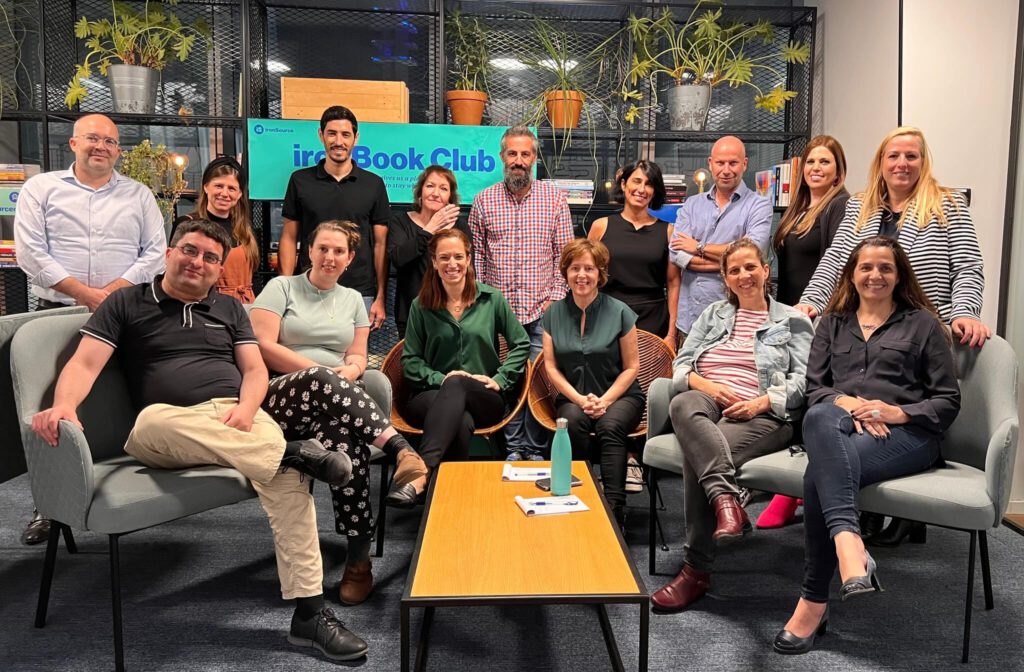Advancing Mental Health and Resilience Policy

The events of the Iron Swords War and the COVID-19 pandemic have underscored the urgent need for a comprehensive national response. This response must not only address immediate crises but also foster mental resilience and promote well-being across various systems and age groups.
Our proposed initiative seeks to fill the critical gap in government policy regarding mental health and resilience in Israel. We aim to spearhead a civic initiative, collaborating with organizations and experts from civil society to develop and advance short, medium, and long-term policy proposals.
Our ultimate goal is to drive meaningful change in government policy that increases resources dedicated to mental health and resilience. We are committed to ensuring these resources are invested wisely and effectively, ultimately enhancing the health and resilience of individuals and communities throughout Israel.
The Time for Mental Health Reform is Now
The Iron Swords War, coupled with the prior challenges of the COVID-19 pandemic, has highlighted the critical importance of mental health and resilience, elevating these issues to a top priority in Israel's national dialogue. The need for action is both vast and urgent. In recent years, there has been a growing acknowledgment that a comprehensive national approach is essential—one that provides robust support for managing hardship, trauma, and challenges while also fostering personal growth, development, and the achievement of life goals. This involves ongoing advancements in prevention, treatment, and recovery services, as well as expanding state-level support across various systems—health, education, welfare, and beyond—catering to all age groups from infancy to old age.
Unfortunately, this holistic approach is not reflected in the current government system, which is struggling across multiple fronts, particularly in crisis management, and is facing significant dysfunction. At the heart of the issue is the severe underfunding of mental health services, which falls far short of what is necessary or standard in developed nations. As a result, mental health remains a low priority on the national agenda. This lack of resources has led to a system that is barely surviving, lacking the capacity to develop a clear vision or long-term strategy. The fragmentation within the government exacerbates the situation, with little coordination or unified approach among the relevant agencies.


The national and personal trauma that emerged on October 7 has ignited an unprecedented awareness of the importance of mental health, resonating in public discourse and among decision-makers at both political and professional levels.
This heightened awareness presents a significant opportunity for meaningful change, but it also carries the risk of letting this window of opportunity slip away. We are already witnessing signs of a "band-aid" approach, which depletes resources without laying the groundwork for the comprehensive changes that are truly necessary. Furthermore, poorly designed policies that lack practicality and effectiveness may hinder our momentum, allowing the current urgency to wane as time passes and the immediate crisis becomes a distant memory.
Experience from various sectors demonstrates that the likelihood of successfully transforming government policy increases significantly when civil society is organized and operates in a structured, professional manner to drive the government toward consistent, long-term action. This collaborative approach ensures that the perspectives of all professionals and stakeholders are thoroughly considered and balanced.
Transforming Mental Health: Our Strategic Proposal
We propose launching and leading a long-term civic initiative that collaborates with stakeholders and experts from civil society to systematically promote effective regulation and national investment in mental health and resilience in Israel.
This initiative aims to balance two essential needs: addressing the immediate crisis, which has persisted for years and intensified in light of recent events, while also rebuilding the system to establish a solid foundation for a broader, more comprehensive long-term approach.
To meet these challenges, we will spearhead a collaborative, long-term process with civil society stakeholders who are eager to participate. Together, we will develop a policy change proposal that can be implemented in the short and medium term, while simultaneously laying the groundwork for a more extensive long-term shift. This initiative serves as a crucial first step to stabilize the current situation before tackling larger, systemic issues.
In parallel, we will work with decision-makers to craft a strategic policy aimed at driving deeper, meaningful change, grounded in the same core principles. Both proposals will be rooted in existing expertise and supported by a robust network of non-governmental organizations active in this field. Their development and promotion will require active engagement from these stakeholders, alongside professional collaboration with government and political leaders, supported by ongoing public and media outreach. We anticipate the entire project will unfold over the next five years.
Project Status: Advancing Mental Health Together
We launched this initiative in July 2024, and since then, a wide array of leading organizations in the mental health field has joined us as partners. This includes the Psychiatric Association, Lishma Association, Young Adults Centers Network, JFN, Israel Association of Community Centers, Forum for Public Psychology Organizations, Movement for Public Psychology, Coalition of Religious Mental Health Organizations, ERAN, Enosh, YAHAT, Israeli Youth Movements Council, ICAR, Families for Mental Health Association, Bar-Ilan University, Social Workers’ Union, Ozma, Israeli Psychiatric Association, Patient Rights Association, C.S.P.C, 2connect, Association of State Employed Doctors, Mental Health in the Community, NATAL, the Joint, and Network for Young Adults Centers.
After forming this collaborative partnership, we identified key issues and challenges within the mental health landscape and outlined 19 policy goals. In September, we hosted a roundtable conference with 15 partner organizations participating. During this event, we reviewed the policy document we drafted and selected key goals for further exploration. This research will guide us in refining both our short- and long-term policy objectives.
The key goals we are focusing on as part of our mapping process include:
- Building resilience capacities within local authorities.
- Promote public awareness by empowering change agents with knowledge and tools.
- Define and regulate new roles in mental health.
- Regulating currently unrecognized professions
- Elevate the status and prestige of public sector workers.
- Create a central coordinating body for inter-ministerial collaboration.
- Develop an emergency response framework for mental health crises.
- Increase funding for community treatment and rehabilitation.
- Support families of patients facing mental health challenges.
- Integrate mental health patients into the system.
Want to get involved?
We'd love to hear from you!

Share:
